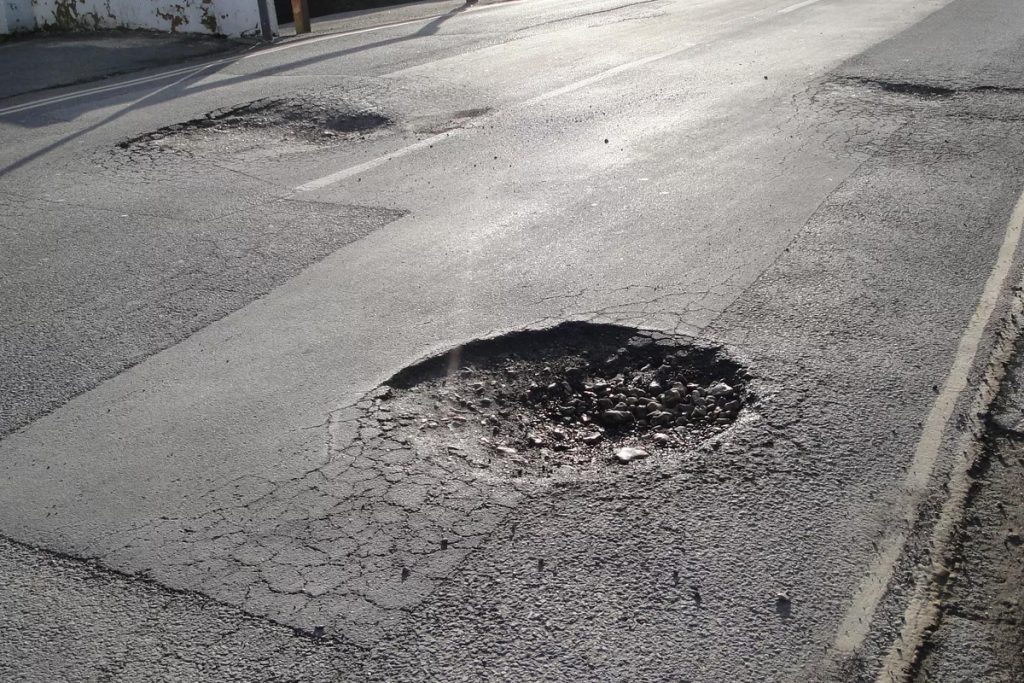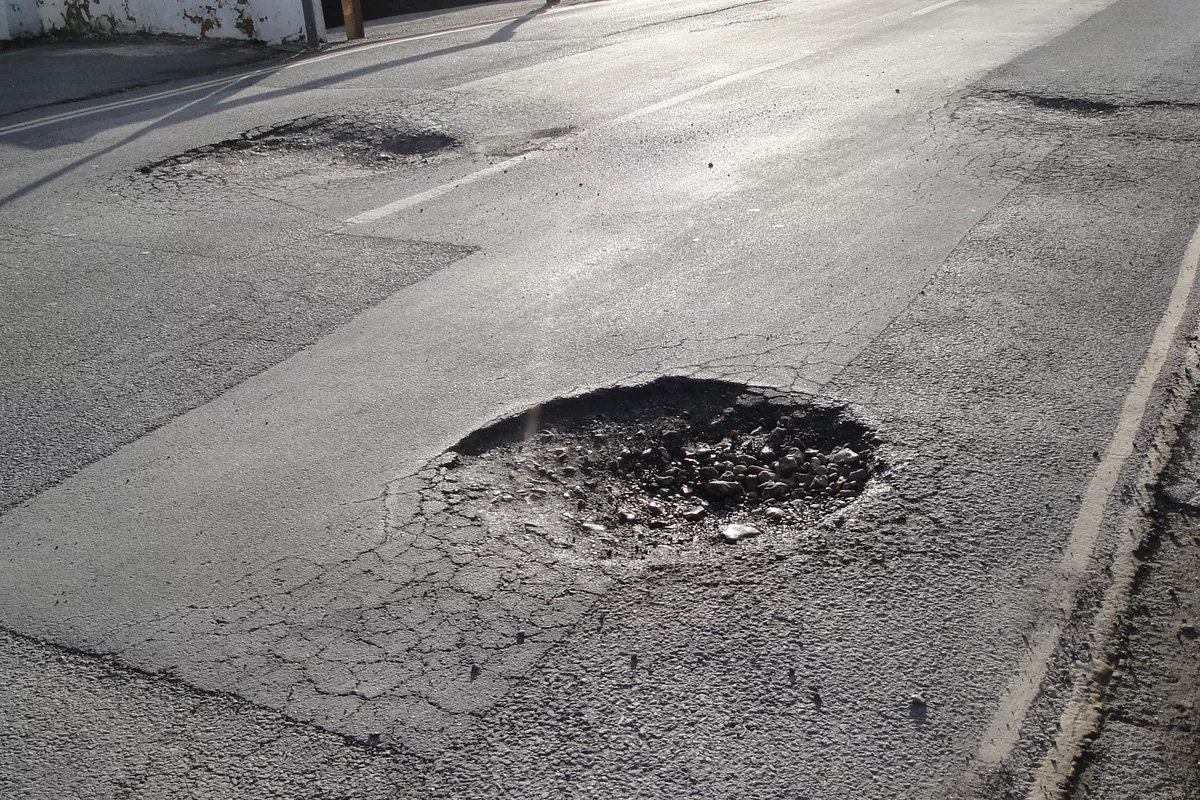
Potholes can do more damage than you may think.
Potholes are a major red flag for your pavement. Just one pothole can do a lot of damage to your parking lot. Existing potholes allow more water to get under the surface of your pavement, making it easier for more cracks and potholes to form, and could also make the existing pothole larger. However, what about the other dangers of potholes?
Not only do they damage your concrete, but potholes can also do a number on your vehicle.
When you drive over a pothole, you can feel the jolt of the bump from your tires to your seat. Now imagine what that hole just did to your car. Harsh road elements can do a number on your vehicle, leaving you with an expensive repair bill and a road hazard. How much damage depends on the pothole’s depth and your speed of impact. You may only see a flat tire, but other, non-apparent, damage could be lurking as well. Here are some of the ways potholes can damage your vehicle.
Tires
Probably the most obvious problem, the first element that makes contact with a pothole is your tires. This can be sidewall bulges, tread separation, and even flat tires. When the hard jagged edges meat your rubber tires, they compress against the tire on impact, which can slice the rubber. Driving on a blown out tire isn’t safe, but, depending on the problem, you may be able to repair it. However, if your tire has a sidewall bubble or a separated tread, it needs to be replaced right away.
Suspension
Your vehicle’s suspension is what makes your ride smooth. This is until you hit a pothole. A car’s suspension is designed to absorb impact, but there is a limit to how much it can handle. Sudden, jarring hits against potholes can cause misalignment, broken ball joints, and damaged shocks or struts. If you experience any unusual sounds or vibrations, it could be an indication that there is suspension damage in your vehicle. If your suspension is out of alignment, it can be put back in place by a qualified mechanic, but until it is fixed, you may notice your vehicle driving off center, your car pulls in one direction, the handling feels loose, and your tires wear unevenly.
Exhaust
Exhaust pipes run along the undercarriage of a car, making them perfect targets for road hazards. Deep potholes can cause the undercarriage to bottom out and scrape against the pavement. This can cause dents or holes in your exhaust pipes, muffler, or catalytic converter. If this is the case, you may notice a loss of power or unpleasant noises. Perhaps worse is the fact that your car will spew out harmful pollution unchecked.
Body
Lower cars may handle better, but those cars sacrifice ride height. This means they are more likely to be damaged by potholes. There will be scrapes and paint damage on your bumpers from the hard, jagged edges. This doesn’t affect the performance of your vehicle, but these makes are unsightly and will cost money to restore the look of your vehicle. If you drive a low, sporty car, use its sharp handling to safely maneuver around any potholes you see.
Call Supreme Sealing
Asphalt patching describes the process of filling potholes or larger excavated areas in asphalt pavement. Deteriorated sections of the paved surface are removed and replaced. Quick repair of potholes or other pavement disintegration helps control further deterioration and can help you avoid additional expensive repair of the pavement. Then prevent potholes with hot asphalt crack filling and asphalt sealing.



